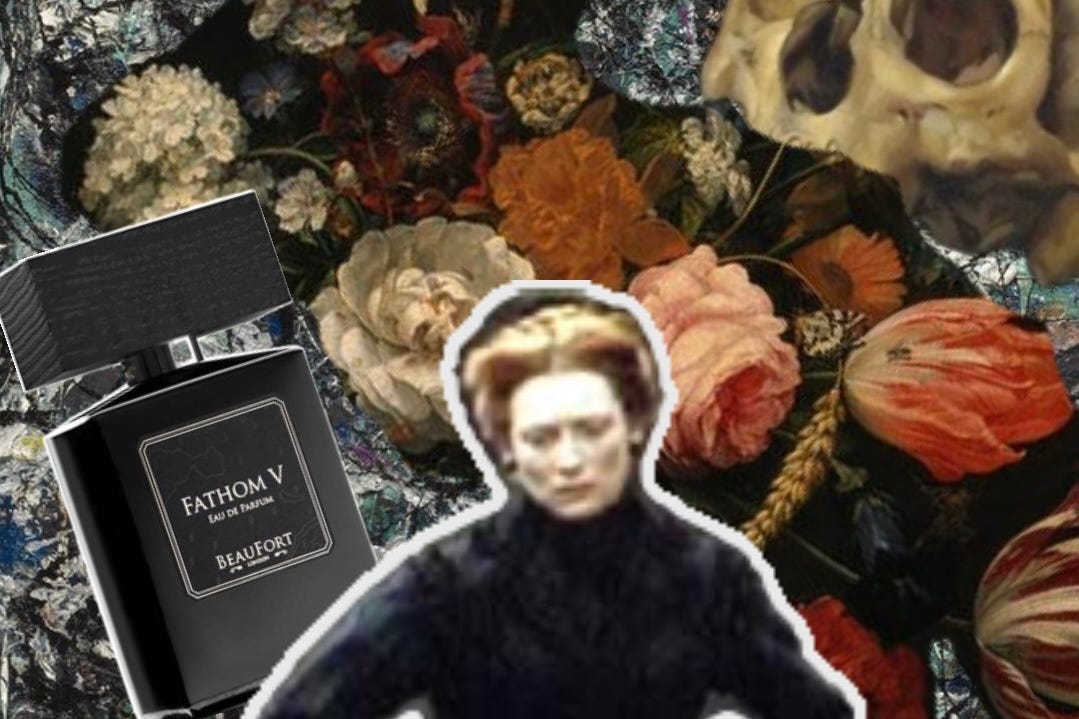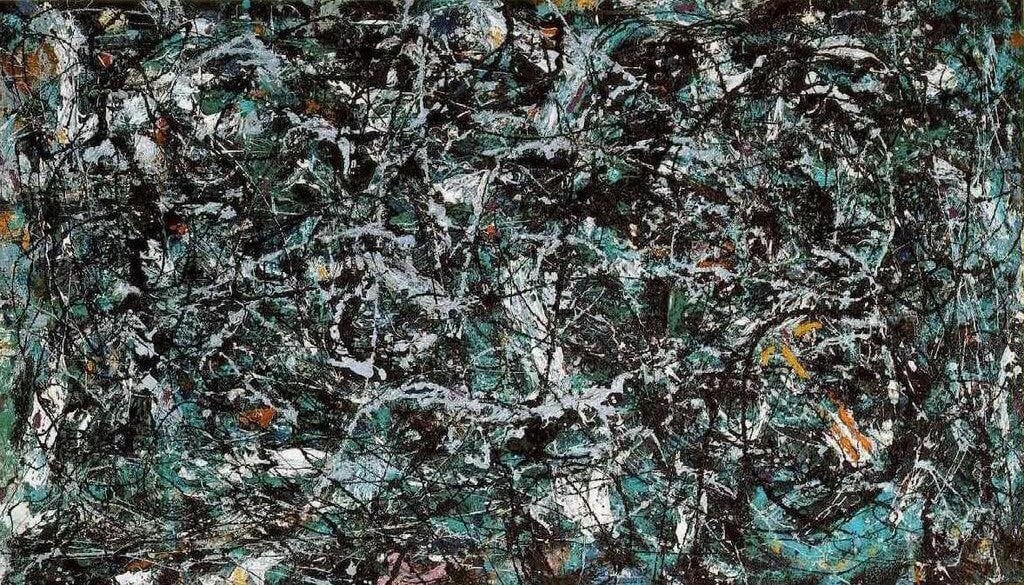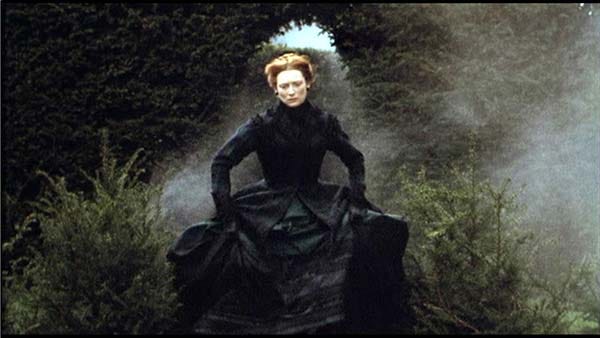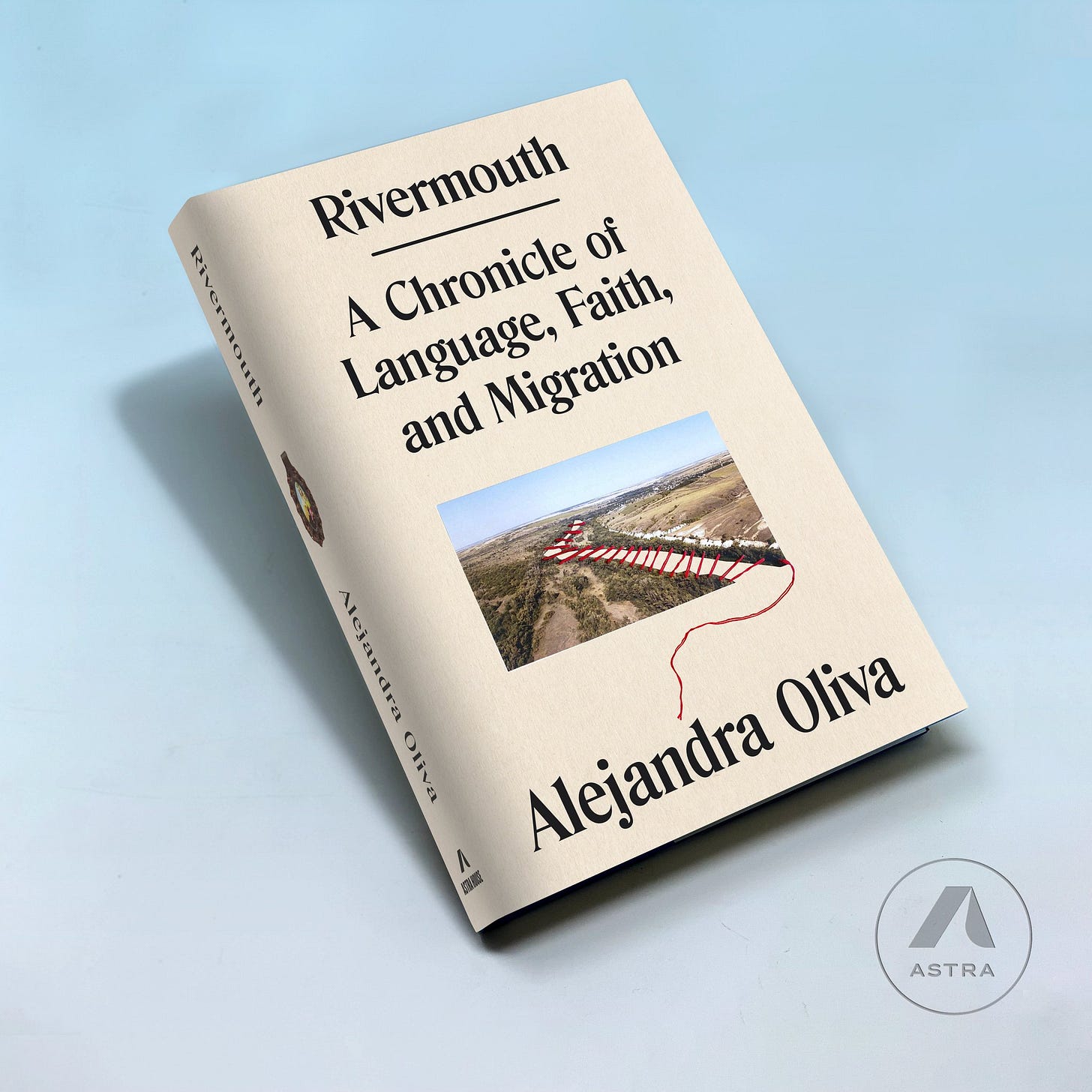
When I first smelled the perfume Fathom V by British perfumer BeauFort, it clanged in my head like a bell. Before you go clicking on that link to read the perfumer’s description of their creation, let me tell you what I smell. To me, it’s a drowned flower shop, all rotting green stems and decaying flowers, tulips drooping in the vase, something bitter and odd down at the very base of it. But as the day goes on, it kind of morphs and shifts into something you’re more likely to smell on the cleanest man you ever dated—a sort of bog-standard, slightly damp and salty cologne, but with a hint of indolic white flowers whispering beneath it all. It smells like civilization, overtaken by nature, like rot and growth and renewal, like a wild beauty you have no hope of understanding. (As a side note, once you do click the link: I hate the bottle design. It looks like a title card for Master and Commander: The Far Side of the World and might make you distrust the bottles’ contents. Don’t: they are sublime, despite the packaging.)
And then you get to the name of it: it’s taken from a snippet of mocking poetry sung by the spirit Ariel in Shakespeare’s The Tempest.
Full fathom five thy father lies;
Of his bones are coral made;
Those are pearls that were his eyes;
Nothing of him that doth fade,
But doth suffer a sea change
Into something rich and strange.
I don’t know what it is about these few lines, but they fall into my head at odd moments—the kind of thing I memorized almost by accident, the ways the rhythm and the meaning fill some kind of gap in my brain.
It wasn’t until my ArtHum class, my freshman year of college, that I saw the painting above. I loved the class, but it was at 3 p.m., and almost always in an over-warm, darkened room, all the better to see the slides, so I also napped through a great part of it. By the time we got to the modernists, we were towards the end of the semester, and I can almost imagine myself, straining towards a sunny, May day, a copy of To the Lighthouse in my bag (LitHum was also covering the modernists, believe it or not). Sweating lightly and fidgeting at my desk, and then this painting is displayed on a projector you have to crane your neck a bit to see. It’s a Jackson Pollock painting, any kid raised on a steady diet of PBS could tell you that much. You see the flings and drips of action painting, the way that the work itself became an archive of Pollock’s actions as he walked around the canvas. What you can’t see, not from this pixelated re-creation, are all the other things that are a part of this canvas. The materials list for the painting reads: “Oil on canvas with nails, tacks, buttons, key, coins, cigarettes, matches, etc.” It was not just the paint, falling onto the canvas, but the very detritus of Pollock’s life, the contents of his pockets, the nails from the barn he painted in, all transmuted into this canvas.
Art historians often refer to “Full Fathom Five” as a “transitional” piece of Pollock’s—begun on an easel with a palette knife, finished on the floor, paced around and earthy. You get the sense of depths, of things settling to the ocean floor—the blues and greens and whites and blacks, the small objects of everyday life that have come to their final resting place on the canvas. However, the transitions this painting represent go even further: X-ray analysis reveals that, under the sedimentary accumulation of paint, the under-layer contains “a figure, standing with parted legs, whose pose ostensibly determines the placement of the found objects across the painting’s encrusted surface.”
The figure buried beneath paint on Pollock’s canvas takes on an even stranger, wilder significance—humanity subsumed into something far stranger and more natural, breaking loose from body and bone to reflect a different kind of truth.
I think when I first started this newsletter, I thought I’d be writing a lot more about perfumes—I’m kind of a magpieish collector, I have a neurotic way of choosing my scent in the morning, I journal daily about whatever I’m wearing, but for all I love it, I often don’t have a whole lot to say about it. (The amount of times the word “lovely” appears in my perfume journaling should frankly get me disbarred as a writer.) Fathom V is different. When I first started wearing it regularly, I joked that it was a true nonbinary perfume—I don’t mean gender-neutral, the perfumer’s word for something woodsy/musky and floral/vanilla-y, I mean nonbinary. I don’t totally know what I mean by that, other than: gender but rot it a little bit, make it something, well, rich and strange.
When I made this perfume recommendation/joke to my friend Kat, (who long, long-time subscribers will remember as the author of this perfect essay on Woolf and Thomas Merton and divinity and selfhood), they said: “Oh, like in Orlando!” To which, I, of course, replied “WHAT DO YOU MEAN BY THAT????”
This is what they meant. Orlando is full of moments in which the main character, a seemingly-immortal, gender-swapping poet, throws themself down on the ground in a kind of loose-limbed thrill. Part of it is out of a very British sense of belonging to the land and the trees of your ancestral estate, but some part of it is something stranger and wilder still. Take this bit, most of the way through the book:
“Then, some strange ecstasy came over her. Some wild notion she had of following the birds to the rim of the world and flinging herself on the spongy turf and there drinking forgetfulness, while the rooks’ hoarse laughter sounded over her. She quickened her pace; she ran; she tripped; the tough heather roots flung her to the ground. Her ankle was broken. She could not rise. But there she lay content. The scent of the bog myrtle and the meadow-sweet was in her nostrils. The rooks’ hoarse laughter sounded laughter was in her ears. “I have found my mate,” she murmured. “It is the moor. I am natures’ bride,” she whispered, giving herself in rapture to the cold embraces of the grass as she lay folded in her load in the hollow by the pool. “Here I will lie. (A feather fell upon her brow.) I have found a greener laurel than the bay. My forehead will be cool always. These are wild birds’ feathers—the owls, the nightjars. I shall dream wild dreams. My hands shall wear no wedding ring,” she continued, slipping it from her finger. “The roots shall twine about them. Ah!” she sighed, pressing her head luxuriously on its spongy pillow, “I have sought happiness through many ages and not found it; fame and missed it; love and not known it; life—and behold, death is better. I have known many men and many women,” she continued; “none have I understood. It is better that I should lie at peace here with only the sky above me.”
This moment comes when Orlando is feeling the weight of the ages crash onto her head, all the detritus of having been alive for an age, and being alone and unsure of her art for most of that age. Just around the corner is Marmaduke Bonthrop Shelmerdine, Orlando’s eventual husband, and someone whose nature resonates with her own so deeply that they can communicate without words and across distances—but he has not arrived yet. All we have is spongy bog and resignation and a kind of wild joy in that resignation.
Because it’s not a resignation to nonexistence—Orlando seems to understand that she will go on, even if she stays in the bog, ankle broken, for an age and another age. Instead, what she is consenting to is change. To become as the bog, to be married to it, entwined in it, to become one with the birds and the roots, to find peace after a lifetime of questing. Orlando has just come through the Victorian age, has found her writing purpling and her ring finger itching for lack of a Very Victorian and proper Spouse, and has spent 100 years trying ever so hard—and in this moment, she shakes it all off, a kind of grand and joyful resignation that is also an acceptance of her true nature.
I’ve been thinking a lot about this sort of resignation, lately, for reasons that I think are probably obvious to a lot of people living through the right-now. But to clarify: My job is frequently frustrating in a kind of life-un-affirming way, the country outside that job is honestly terrifying in a way that feels so huge and unimaginable I cannot wrap my head or my arms around it, and just out back behind my office is a little corner of remnant prairie.
I got to work early the other day, and there was a thick blanket of fog that had settled over everything, making it easy to forget that the prairie is just a wedge of land, ensconced between mid-19th century McMansions. Instead, it felt wild and endless. And so I left my backpack and my coffee thermos in the car and I walked out, looking at grasses and seeds and mud and ice and ghostly trees in the distance. I walked until I could no longer see the building in which I work, until I could no longer see anything but prairie and mist and my own breath pluming out in front of me. I did not throw myself to the ground because it is February in Illinois, but the impulse was there, to feel the grasses close over my head, to sit so still a deer approaches me.
I wanted quiet, I wanted space, yes, but I also wanted to feel like I belonged to this place more than I belonged to my office building, to my computer, to my car, to my phone, to be able to place the responsibilities I have to places like the prairie and to my own body, and those of other people at the center of my life.
It feels as though this moment in time is demanding more from us, from me, than I personally know how to provide, especially because as I fret, the ground shifts beneath me day by day. Gender, in particular, feels less like a comforting, if lightly tossed-on, garment and more like a stranglehold—not because my relationship to it within myself has changed, but because the political realities around it are profoundly different and dangerous feeling. What does being a wife mean in an age of tradwives? What does motherhood mean in an age of forced birth? What can being a woman mean in an age when the government defines your gender as existing before you are even born? I want, not to be resigned to this, but to resist it, to stake a claim for a kind of womanhood that is richer and stranger than the one that dominates the current discourse, for an experience of gender that is weirder and wilder than that which is encoded in our laws. (It always has been, but these stakes feel particularly important these days.)
This is not a time for resignation, but it is a time to consent to change—not the change foisted upon us, but the change we need to enact to resist it. I have a contentious relationship with the Christianity I was raised in, but I think there’s something to the idea that when you become a Christian, you die to the world and to your old, pre-converted self, and become reborn in the church. We have a choice, these days, to be reborn into these times, to consent to change with them not in resignation to the fascist values that feel as though they are permeating everything with so little resistance, but in resignation to our truer, wilder selves, to shake off the mores of our time and to walk into the prairie.
By this, I mean not abdicating responsibility, but rather becoming the people we need to be to survive this moment and to rebuild the next one. We do this by surviving, by beginning to build, by holding fast to what is most beautiful and strange within us and letting go of all the rest. There is some grief in that—for the lost world and the lost lives we may have led, a little twinge of nostalgia for a life that, in all likelihood, never existed—but it also lets us see, clear-eyed, the work that needs to be done.
There is not some better, more radical version of me that is coming to save me, no version of me that will do all the work of organizing and safeguarding and keeping in touch that is not also the me that’s is living through these days, one by one. There is no version of me that is better at resisting the cop and the youth pastor in my head than the one that resists them day by day already—and no version of me better at resisting them outside of my head. I am already that person, and I also need to consent to becoming her, more fully and full-throatedly. I have everything I need in my pockets, I just need to figure out how to take the canvas down from the easel.
I’ve been debating the kind of writing I need to be doing in this time, and I think this newsletter needs to stay a place of books and perfume and beauty, but if you’re interested in a more news-centered approach, I’ve also been collaborating with the amazing Jessica Goudeau and on a new, shared newsletter: . So far, I’ve written essays on the repeal of the Sensitive Locations Memo and ICE raids as well as changes to the NEA, and Jess and Lauren have covered topics as diverse as Elon Musks’ long history with USAID and the focus on Afrikaners in refugee resettlement. Please go check it out, or if you came here from there, welcome!
I’m also committing more wholeheartedly to my writing, and particularly this newsletter. On that note, I’d love to make it more sustainable for me to work on—I usually read a couple of books and spend several hours across a few days or weeks working on these essays, and right now I’m in it for the love of the game.
I also want to acknowledge that things are about to get a lot weirder and harder out in the world for people with my occupations, my identities, and my publicly stated opinions, and I want to keep writing things that feel risky-in-the-current-climate but true-to-who-I-am, and a paywall makes me feel safer doing so. I think the last letter I sent out is a good example of the kind of behind-the-paywall writing you can expect.
All of that said, I’m turning on paid subscriptions. There won’t be a lot behind the paywall to begin with, but that might change as I go. Any support is helpful, but no pressure.
A few weeks ago, Christian Century published my interview with Martin Dickinson, a leader at the National Cathedral’s Sanctuary Ministry, on what lies ahead for the immigration movement, and on the Migration with Dignity framework recently adopted by the Episcopalian Church.
And as always, my book is available for purchase wherever books are sold. Rivermouth: A Chronicle of Language, Faith and Migration is about translation, God, immigration, and how to change your own life.









Wow I loved every minute of this
about to get myself disbarred as a writer but: this was so, so lovely and hopeful, which are two things we need more of right now!!